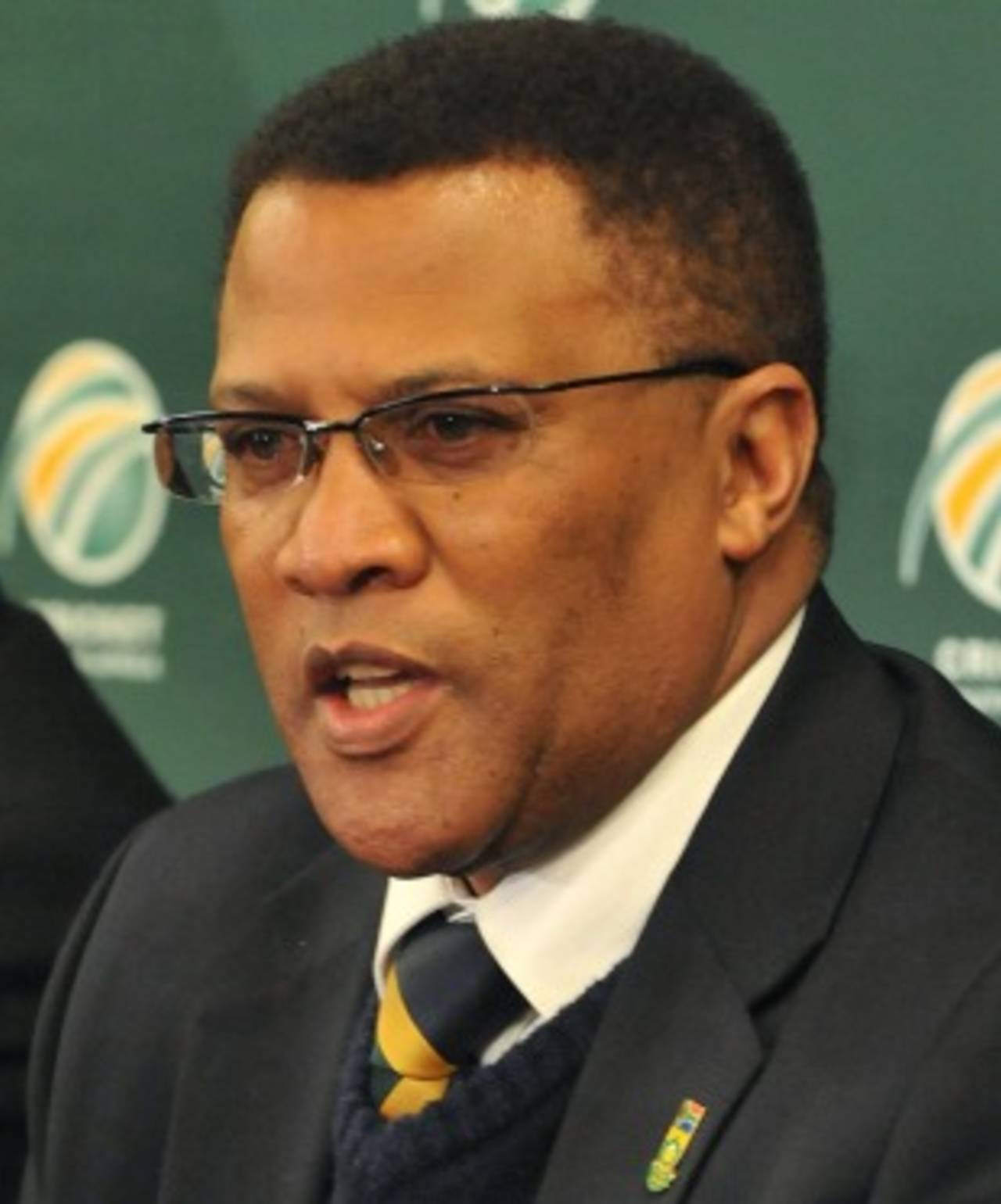Majola believed to have violated Companies Act
The committee investigating the payment of unauthorised bonuses to Cricket South Africa chief executive Gerald Majola believes the Companies Act was violated and has recommended that the case be referred to the National Prosecuting Authority
ESPNcricinfo staff
09-Mar-2012

The committee investigating the payment of unauthorised bonuses to Gerald Majola has recommended that the case be referred to the National Prosecuting Authority • Getty Images
The committee investigating the payment of unauthorised bonuses to Cricket South Africa chief executive Gerald Majola believes the Companies Act was violated and has recommended that the case be referred to the National Prosecuting Authority.
"There is a prima facie case that Mr Majola contravened sections 234, 235 and 236 of the Companies Act," retired Judge Chris Nicholson, who headed the committee, said in court, according to Business Day. "We believe there is a prima facie case of non-disclosure concerning the bonuses and irregularities with regard to travel and other costs.
"Such investigations should also include whether any provisions of the Prevention and Combating of Corrupt Activities Act, 2004 (Act No 12 of 2004) ... have been contravened."
Majola and the other staff members received a collective R4.7 million (US$ 671.428) in bonuses after the hosting of the 2009 IPL and Champions Trophy but those payments were not disclosed to CSA's remunerations committee (REMCO) and were picked up as irregularities. KPMG were eventually tasked with looking into CSA''s financial affairs and found that Majola may have breached the Companies' Act on four counts. When CSA did not make KPMG's findings public, South Africa's Sports Minister, Fikile Mbalula, chose to intervene and set up the inquiry in October, 2011.
According to Nicholson, Majola was the dominant force in the allocation of bonuses, not former chief financial Don McIntosh, who resigned from CSA in 2010.
The committee handed in its report to CSA on Thursday. The board said the report will be circulated to the Board of Directors, who will consider the recommendations of the committee and report back to Mbalula by April 9. The board also said Majola would make a public response once he had finished studying the report.
Majola's contract includes the provision of suspending him with pay for up to 180 days and the committee has recommended that the board consider such a step. "It would be in Mr Majola's own interests to give him time to prepare his defence, unfettered by his normal duties," Nicholson said.
The committee was also asked to investigate the legality of certain expenses incurred by Majola, whose contract allows for him to be reimbursed for travel expenses provided they were first approved by the board. Majola had claimed that he was reimbursed for his family's personal travel expenses because of a mistake made by a travel agent or his professional assistant.
"The committee was sceptical that it was an error of his professional assistant or a travel agent," Nicholson said. "They would have been acting on Mr Majola's instructions and it is improbable that they would charge CSA for his children's flights without his instructions, either in general or on specific occasions [when] the said flights were undertaken."
Edited by Tariq Engineer